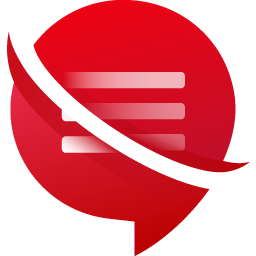PHP Frameworks – Web Development with Efficiency and Structure

PHP (Hypertext Preprocessor) is a server-side scripting language that has been a stalwart in web development since its inception in 1994. Over the years, the PHP ecosystem has evolved, and developers have sought ways to streamline the development process, enhance code organization, and improve project maintainability. Enter PHP frameworks – powerful tools designed to simplify and accelerate web application development.
What is a PHP Framework?
A PHP framework is a pre-built, reusable set of tools, libraries, and conventions that provide a structured way to develop web applications. These frameworks aim to promote code reusability, maintainability, and scalability by enforcing a standardized architecture. Developers can leverage these frameworks to expedite the development process, reduce boilerplate code, and adhere to best practices.
Popular PHP Frameworks
1. Laravel
Key Features:
- Elegant syntax and expressive code
- Powerful ORM (Object-Relational Mapping) with Eloquent
- Artisan command-line tool for common tasks
- Robust routing system and middleware support
- Blade templating engine for intuitive views
Use Case: Laravel is ideal for building modern, full-featured web applications. Its simplicity, coupled with powerful features, makes it a popular choice for projects of all sizes.
2. Symfony
Key Features:
- Modular components for flexibility
- Robust set of reusable PHP libraries
- Extensive documentation and strong community support
- Configuration-driven development
- Twig templating engine for efficient templating
Use Case: Symfony is suitable for large-scale enterprise applications and complex projects. Its modular architecture allows developers to choose components based on project requirements.
3. CodeIgniter
Key Features:
- Lightweight and easy to learn
- Minimal configuration, quick setup
- MVC architecture for organized code
- Excellent performance
- Broad compatibility with standard hosting accounts
Use Case: CodeIgniter is a great choice for developers who prefer simplicity and performance. It’s suitable for small to medium-sized projects and applications.
4. Yii
Key Features:
- High-performance framework
- Powerful caching support
- Gii, a web-based code generation tool
- Security features, including input validation and output filtering
- Easy integration with third-party libraries
Use Case: Yii is well-suited for developing robust and high-performance applications. Its features make it an excellent choice for projects where speed and security are paramount.
5. Zend Framework (Laminas Project)
Key Features:
- Flexible and loosely coupled components
- Extensive support for various database systems
- Robust security features
- Middleware architecture
- Highly customizable and modular
Use Case: Zend Framework, now part of the Laminas Project, is suitable for large-scale enterprise applications that demand a high level of customization and flexibility.
Advantages of Using PHP Frameworks
- Rapid Development: PHP frameworks provide a set of conventions and tools that accelerate the development process, allowing developers to focus on building unique features rather than reinventing the wheel.
- Code Organization: Frameworks enforce a structured architecture, often following the Model-View-Controller (MVC) pattern. This results in organized and maintainable code, making it easier for developers to collaborate on projects.
- Security: Frameworks come equipped with built-in security features, such as input validation, output filtering, and protection against common vulnerabilities. This helps developers build more secure applications by default.
- Community and Documentation: Popular PHP frameworks have large and active communities. This means extensive documentation, tutorials, and forums where developers can seek help, share knowledge, and contribute to the improvement of the framework.
- Scalability: Frameworks often provide tools for handling scalability challenges, such as caching mechanisms, database optimization, and support for distributed architectures.
Challenges and Considerations
While PHP frameworks offer numerous advantages, developers should also be aware of potential challenges:
- Learning Curve: Some frameworks may have a steeper learning curve, especially for beginners. However, the investment in learning pays off in increased productivity over time.
- Flexibility vs. Convention: The trade-off between flexibility and convention can vary among frameworks. Developers need to choose a framework that aligns with the project’s requirements and team preferences.
- Performance Overhead: While frameworks aim to streamline development, there may be a performance overhead compared to raw PHP. However, the benefits in terms of maintainability and development speed often outweigh the slight performance trade-off.
PHP frameworks have played a pivotal role in shaping the landscape of web development. Whether you’re a seasoned developer working on a large-scale enterprise application or a newcomer building a small project, there’s likely a PHP framework that suits your needs.
As the PHP ecosystem continues to evolve, frameworks will adapt to new challenges and incorporate the latest technologies. Ultimately, the choice of a PHP framework depends on project requirements, team expertise, and development preferences. By leveraging the power of frameworks, developers can build robust, secure, and scalable web applications with greater efficiency and ease. Happy coding!






